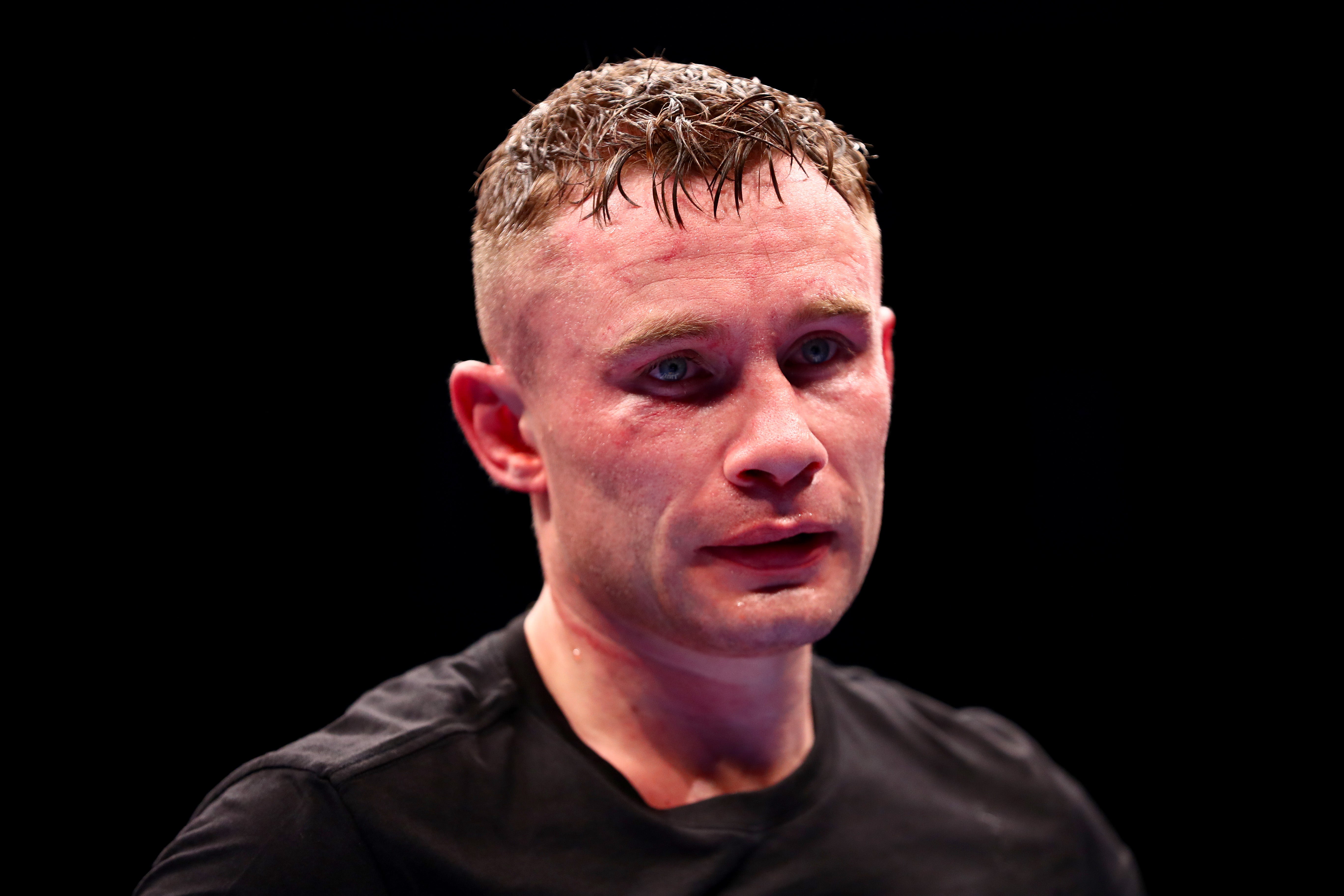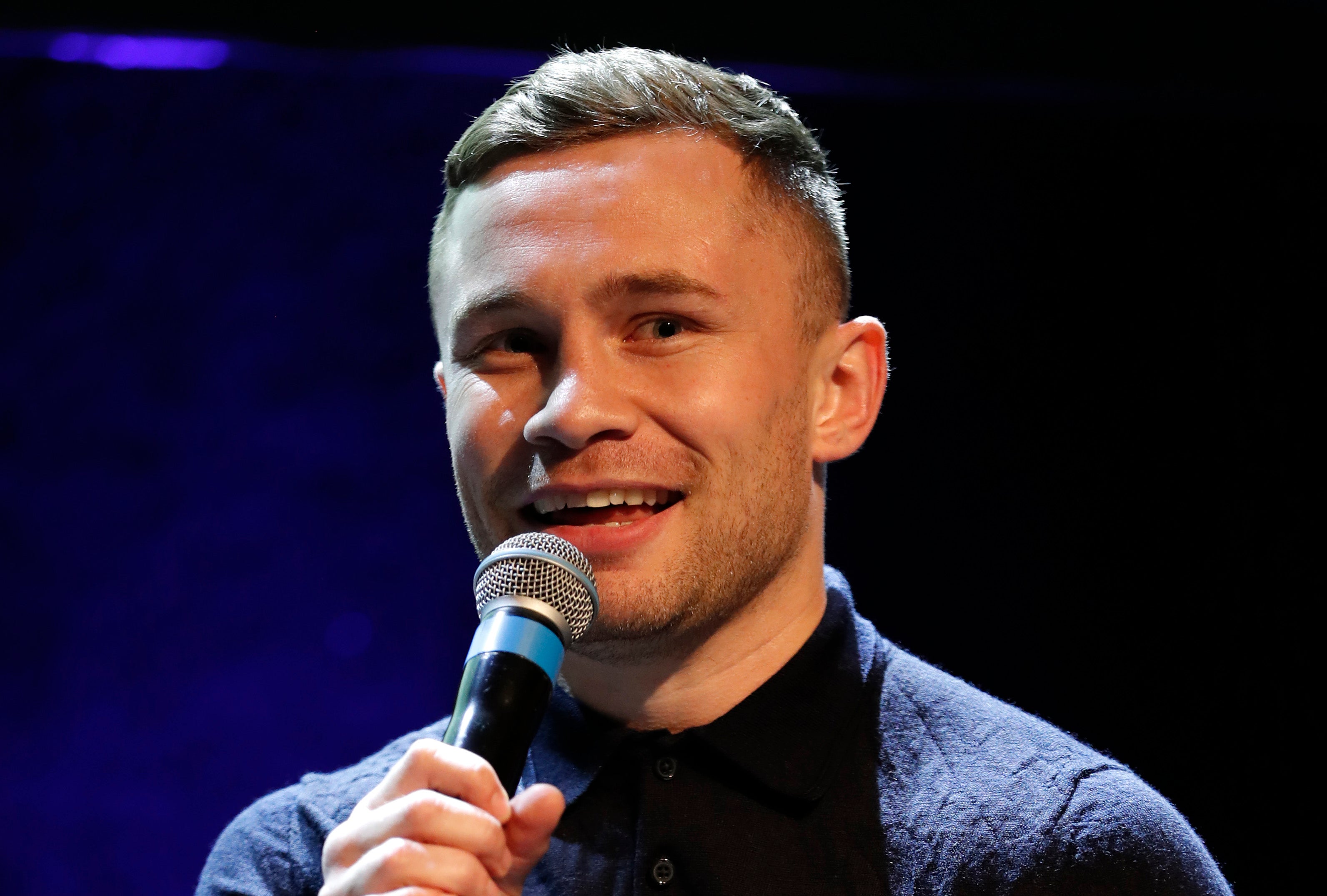Carl Frampton on leaving boxing, love in Belfast, and ‘bull****’ answers to big questions
Exclusive interview: The Northern Irishman looks back on his decision to retire and falling in love with a Catholic as a Protestant, and calls for greater transparency around sportswashing

Your support helps us to tell the story
From reproductive rights to climate change to Big Tech, The Independent is on the ground when the story is developing. Whether it's investigating the financials of Elon Musk's pro-Trump PAC or producing our latest documentary, 'The A Word', which shines a light on the American women fighting for reproductive rights, we know how important it is to parse out the facts from the messaging.
At such a critical moment in US history, we need reporters on the ground. Your donation allows us to keep sending journalists to speak to both sides of the story.
The Independent is trusted by Americans across the entire political spectrum. And unlike many other quality news outlets, we choose not to lock Americans out of our reporting and analysis with paywalls. We believe quality journalism should be available to everyone, paid for by those who can afford it.
Your support makes all the difference.On an April evening in Dubai last spring, Carl Frampton found himself sitting on a stool in the corner of a ring in Caesars Palace. “F*** me,” he thought to himself. “This is gonna be a really difficult night.”
The manmade mini-peninsula on which the Northern Irishman was fighting is not steeped in the same boxing history as its Nevada namesake, but it would observe a significant moment in the career of one of this generation’s most talented combatants. It would observe the end of that career, in fact.
Fifteen months after his loss to Jamel Herring, Frampton is in a London airport, his breathing much less laboured as he speaks to The Independent over the phone. His voice is, of course, more composed than it was during the post-fight speech in which he rued missing the chance to see his children grow up. His mind is more at peace, too.
Recalling his decision to retire at the age of 34, Frampton says: “It wasn’t hard at all. I kind of retired in the ring, but speaking to the people closest to me going into that fight, I knew I was retiring. Obviously, you want to go out on a big win, but it was just a stretch too far. It’s a really horrible feeling when you go into a fight confident but sit down on the stool at the end of Round 1 and think: ‘F*** me, this is gonna be a really difficult night.’”
It was indeed a difficult night for five-and-a-half rounds before Frampton’s corner saved their fighter, ending his hopes of leaving Dubai with the WBO super-featherweight title. The towel came in like a curtain coming down on Frampton’s fighting career, ushering in a new stage in his life.
“It was emotional at the end,” Frampton says. “I was away from home, there weren’t many people there because of Covid, my wife and kids were back in Belfast. It was tough. I shed a few tears, but I was kind of looking out at the end, looking away to the end of a perfect career...”

It was a 12-year career that saw Frampton win world titles at bantamweight and super-featherweight, a career in which he combined blurring speed with fierce power and considerable in-ring intelligence to beat Nonito Donaire, Leo Santa Cruz, Hugo Cazares and Kiko Martinez among others. Now 35, Frampton partly fills his time by working for BT Sport, offering some of the most insightful analysis in all of boxing.
“I suppose retirement’s been busier than I thought it was gonna be,” he says. “I thought I would’ve had a lot more time at home, twiddling my thumbs, but it’s been pretty flat out, to be honest. Obviously, I’ve got the new gig with BT, I’m doing bits and pieces for different charities, I’ve got a podcast coming out. I’m trying to balance that with my home life and what I’ve wanted to do: take a bit of time off and chill out with my wife and kids.”
Coming from a Protestant background, a younger Frampton feared that his blossoming relationship with his now wife Christine, a Catholic, would prove divisive in a city and country that had long been, well, divided.
“When we first got together in Belfast, I was thinking that potentially there could be friction, we could get a bit of stick, there could be people where I’m from that would have an issue with it – and vice versa,” Frampton says. “But there was no real issue. In the street, I have never had someone have an issue with me, nor have the people closest to me. Online… social media is a f***ing horrible place. You get the usual idiots who like to mouth off, but that’s to be expected in this day and age. It was something I’d worried about a bit, but I just fell in love with a girl…”
Frampton had already fallen in love with boxing, but the sport can be a selfish partner, taking more from the enamoured than it gives in return. Few in boxing enjoy a balanced relationship with the sport, and so Frampton encourages fighters to seize opportunities to make money while they can. He does, however, call for greater transparency from fighters, promoters and managers when it comes to sportswashing, a practice in which countries host sporting events to distract from scandals, crimes and/or poor human rights records.

“I think it’s a bit of a cop-out for people to say: ‘We’re boxing in Saudi Arabia, we’re playing the LIV golf there because we’re trying to promote our sport in the Middle East,’” Frampton says. “It’s bull*** really, it really is,” he spits, that composure in his voice fracturing for the first time in our conversation.
“I’d almost prefer the athletes, promoters and managers to just say it how it is; just say you’re going there for the money. There’s nothing wrong with that really. We’re in a f***ing sport where there’s only, I’d say, 0.5 per cent of boxers who are able to live comfortably after they’ve retired. Not many people can buy a house after they’ve had a professional boxing career. Golf’s a different story, but… You've got to think of the hundreds of thousands of journeymen boxers who don’t get close to fighting for titles.
“If people were just honest really, I think others would accept that. Just say, ‘Look, the money was too good to turn down, that’s why we're fighting in Saudi Arabia,’ or, ‘That’s why I'm playing in the LIV tournament.’ But where do you draw the line? ‘I only want to compete in neutral countries that don’t have wars…’ Every f***ing country in the world has their own issues. Where do you draw the line?”
It is a significant answer from a fighter who drew a line under his career in Dubai. Finally, more than two decades on from committing himself to boxing, Frampton can take more from the sport than he must give.
Join our commenting forum
Join thought-provoking conversations, follow other Independent readers and see their replies
Comments